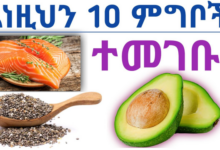6 main foods you should eat during pregnancy
Eating a well-balanced and nutritious diet is crucial during pregnancy to support both the health of the mother and the proper development of the baby. Here are six main foods that are recommended for pregnant women:
- Fruits and Vegetables:
- Rich in essential vitamins, minerals, and fiber.
- Provide antioxidants that help protect cells from damage.
- Good sources of folate, crucial for preventing neural tube defects.
- Include a variety of colors for a broad range of nutrients.
- Whole Grains:
- Excellent sources of complex carbohydrates and fiber.
- Provide energy and help regulate blood sugar levels.
- Whole grains like brown rice, quinoa, and oats offer more nutrients than refined grains.
- Lean Proteins:
- Essential for the baby’s growth and development.
- Good sources include lean meats, poultry, fish, eggs, tofu, legumes, and nuts.
- Choose fish rich in omega-3 fatty acids but be cautious of mercury levels.
- Dairy Products:
- Excellent sources of calcium and vitamin D, crucial for bone development.
- Choose low-fat or fat-free options like milk, yogurt, and cheese.
- If lactose intolerant, consider lactose-free alternatives or calcium-rich plant-based options.
- Iron-Rich Foods:
- Vital for preventing iron-deficiency anemia in both the mother and baby.
- Include lean red meat, poultry, fish, legumes, and fortified cereals.
- Enhance iron absorption by consuming vitamin C-rich foods alongside iron-rich ones.
- Healthy Fats:
- Essential for the development of the baby’s brain and nervous system.
- Sources include avocados, nuts, seeds, olive oil, and fatty fish (like salmon).
- Omega-3 fatty acids are crucial; consider supplements if dietary intake is insufficient.
In addition to these specific food categories, it’s essential for pregnant women to stay hydrated by drinking plenty of water throughout the day. Moreover, consulting with a healthcare professional or a registered dietitian is recommended to ensure that individual nutritional needs are met and to address any specific concerns or dietary restrictions during pregnancy. A balanced and varied diet, along with proper prenatal care, contributes significantly to a healthy pregnancy.











